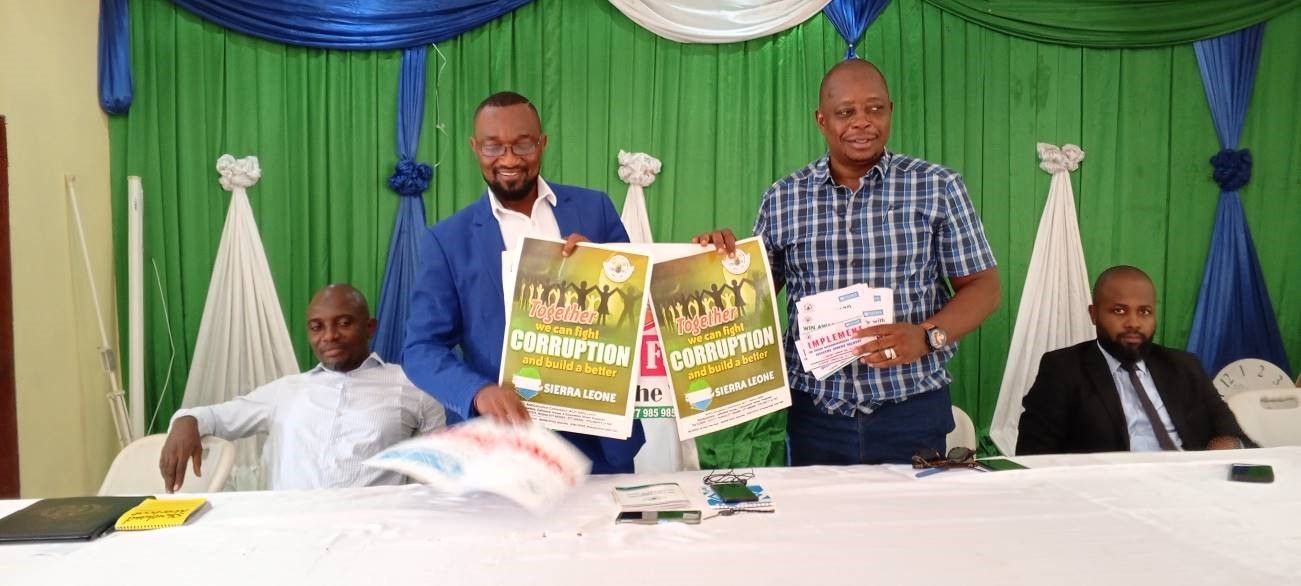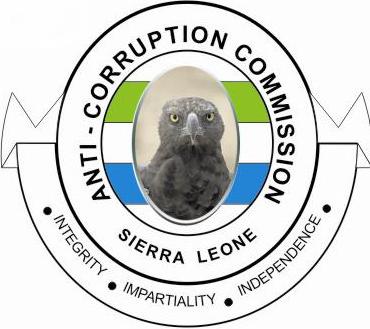“Upholding integrity is fundamental not only to attain sustainable development but also to help address the extant systems weaknesses prevalent in public sector institutions.” This statement was made by the Chief Administrator, Bo District Council (BDC), Abdul Koroma, in a customized meeting organized by the Anti-Corruption Commission (ACC) Southern Region Office in order to capacitate councilors and core staff of the council with ethical values and corruption safeguard tools.
The engagement took place on Thursday 14th March 2024, at the council’s conference hall in Bo.
Mr. Koroma appreciated the Commission’s prevention drive to promote best practices in the operations of public sector institutions. He assured the ACC of their commitment to building on the gains already achieved and promised to institute anti-corruption safeguards.
Speaking to staff and councilors of BDC, ACC’s Regional Manager, South, Momodu Sittar, spoke on the significance of the engagement and described it as a process meant to institute reforms geared towards preventing corruption. As the architect of development at the local level, he said, it is imperative on council to promote practices and policies that enhance transparency and accountability in the discharge of their duties. The Manager reminded the councilors and staff of the council that they are required by law to declare their income, assets and liabilities by the deadline date of 31st March.
Mr. Sittar recognized that until the public show disapproval for corruption the corrupt will flourish at the expense of the underprivileged majority.
In his statement, ACC’s Senior Public Education Officer, Abdulai Saccoh, admonished his audience that the aspiration of the people could not be realized if the activities of councils are inundated with corruption. He said that public perception about some councils is negative, adding that they must therefore ensure that they uphold public trust by mainstreaming integrity, transparency and accountability in their activities.
Mr. Saccoh highlighted a number of complaints often received from members of the public including; receiving unjustified sitting fees, diversion of public funds and property for personal use, breach of legal regulatory framework, over invoicing, short payment at training workshops, misuse of official motor bikes and vehicles, and fraudulent house rate billing. “Issues of accountability and integrity should not be compromised because they have the tendency to undermine the effective provision of services tothe citizens,” Saccoh furthered.
The ACC’s Resident Prosecutor, Nigel Davies Esq, in his statement, said that laws are meant to guide society in order to ensure peaceful coexistence. He said as duty bearer it will be an unpardonable act for them to engage in any acts to circumvent laws. Mr. Davies dilated on a number of offences contained in Part IV of the Anti-Corruption Act 2008 (as amended in 2019) such as; Abuse of Office, Abuse of Position, Gift, Offering, Soliciting and Accepting an Advantage, Misappropriation of Public and or Donor Funds or Property. He reminded the participants of the consequences that await anyone convicted of the above, including a fine not less than Fifty Million (Old) Leones or imprisonment for a term not less than five years or suffer both such fine and imprisonment.
Explaining the
rationale of the engagement to staff and councilors of BDC, ACC’s Public
Education Officer, Mohamed .A. Kabba, admonished them that the meeting was
intended to capacitate duty bearers with the required knowledge that will guide
them in their day to day operations. Mr Kabba reminded his audience of the
Commission’s determination to pursue injustice wherever it rares its ugly head. The Public Education
Officer urged the BDC administration to intensify their monitoring and
supervision of MDAs devolved to them.
ACC’s Regional Manager, Momodu Sittar, presenting IEC materials to BDC Chief Administrator, Abdul Koroma





